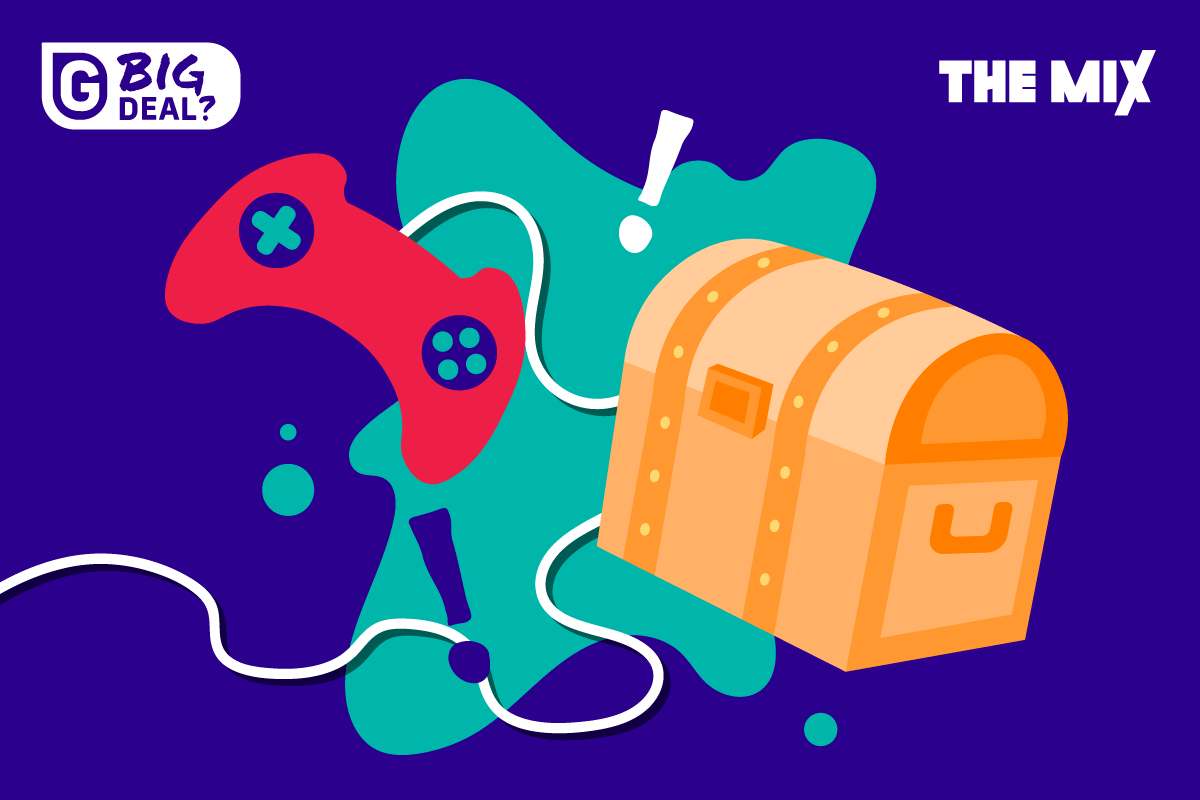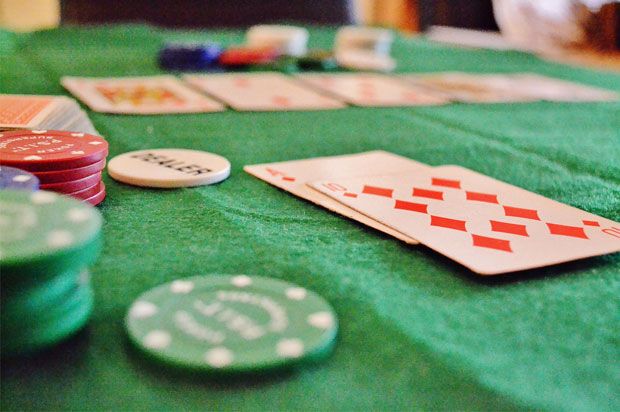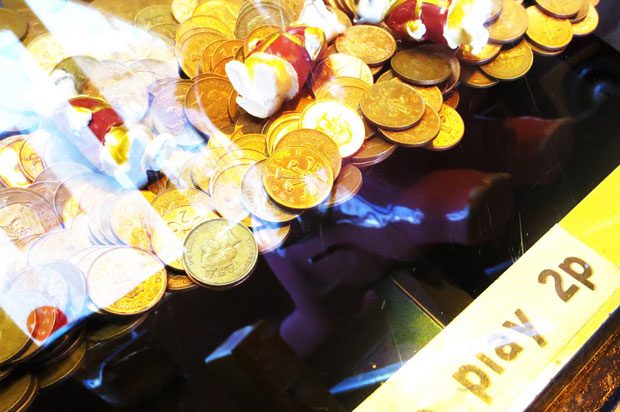Loot boxes: What you need to know
What are loot boxes & how can you get support if you're experiencing problems with them? Read our guide to find out more.

Hey, I’m V – Senior Engagement & Training Officer at The Mix. I’m a huge nerd and have a keen interest in communication and social issues like masculinity, gender and ‘taboo’ topics like sex.
A lot of modern video games have a loot box mechanic (or something similar). There has been increasing discussion online about the similarities between loot boxes and gambling – the addictive nature of them, and what (if any) regulation around them is necessary.
What is a loot box?
A loot box is something you can win or purchase in a lot of modern video games. It offers random rewards depending on the ‘level’ of the loot box.
For example, you might get a chance of winning a certain skin, a weapon or a power up. This earns more experience points for your character while playing. However, you don’t know what’s inside until you buy and open the box.
This is very similar to how card games, like Hearthstone, make most of their money. You purchase a pack of cards, either with virtual currency or real money (or virtual currency you bought with real money), and depending on how lucky you are, you might get higher or lower rarity cards from the pack.
“I’m not against games having loot box elements. The issue for me is when you have to use real money to get them. If they’re available to free players using in-game earned currency, then you’re still gambling, but it doesn’t impact your real-life situation (within reason). But when it involves real money, that’s when you get more serious problems – debt, borrowing from others, withdrawing due to shame etc.” – Anonymous community member
I was addicted to Hearthstone
For anyone that doesn’t know, Hearthstone is a collectible digital card game based on World of Warcraft. You play against an opponent using creatures and spells – the usual stuff.
Half the fun of a collectible card game is building your own decks with the cards you like, or the cards that are the strongest. To expand your collection of cards, you need to buy card packs from the in-game store. You can do that with virtual currency (which you earn by playing games) or real currency, but earning enough virtual currency to meaningfully expand your collection takes an immensely long time. So, if you’re a serious player, buying at least some card packs with real money is a helpful thing to do.
Naturally, this meant that when a new expansion was released, I spent as much as I could on the new card sets. I regularly broke triple figures per expansion cycle (around 3 months).
It doesn’t help that I have ADHD. The instant reward and consequences built into video games make them extra addictive for me. When you add gambling on top of that, that slope gets slippery real quick. It’s easy to lose control of what you’re doing.
The cost of loot boxes
Something that shocked me out of this cycle was deciding to look at my transaction history for the game. They don’t make this information easy to find; you have to dig for it in your account page. Boy was that a reality check. My total spend on the game was about four times as much as my highest guess would have been.
I’m too embarrassed to even give a ballpark figure for how much I spent on Hearthstone. Thankfully I was living with my parents at the time and my expenses were otherwise low. It would have been very different otherwise.
If I had taken the issue more seriously at the time, I would have talked to someone and been more honest about how controlled I felt by it. I didn’t even make the link between addiction, gambling, and playing video games.
“My main concern with it really is if it requires the use of real money. It’s so easy to get carried away and not realise how much you’ve spent and I imagine it can be quite difficult to cut back.” – Maisy (community member)
Similarities to gambling
With the random ‘spin the wheel’ nature of loot boxes, it’s not surprising that critics have likened them to a legalised version of gambling.
Even if you remove the fact that you can purchase them with real money, it’s a naturally addictive cycle. Loot box mechanics keep you playing the game. They increase the chance that you spend real money on it at some point, so the game makes more money.
“My friend was talking to me about this recently and he agrees that they can be quite addictive. I think it can be quite harmful for children because loot boxes often try to entice you with flashing lights and rare skins, etc. Quite harmful for the parents’ bank accounts too.” – Matthew04 (community member)
Issues with virtual currency
Spend £10 on this new outfit for my character? Pfft, no way. Spend 1000 in-game tokens (which I bought for £10) on the same hat? Sure! That wasn’t real money anyway! *screams at my own brain*
You can see the issue.
Another sneaky thing here is that games usually won’t allow you to buy a specific amount of in-game currency. For example, you might be able to buy 1000 tokens for £10, 5000 tokens for £30, and so on. This means you get a lot more value from the in-game tokens if you buy more of them.
To make it worse, in-game stores will often sell things for inconvenient prices. Say you decided to buy 1000 tokens, but the item you want only costs 750 and nothing else is cheap enough to buy with your remaining 250 tokens. So in reality that item costs you 1000 tokens, unless you buy more to allow you to spend them.
“I feel like there should be some form of ban even if it was like a safety block for children under a certain age to prevent them from spending real life money or even using parent’s credit cards. It seems the law/legislation has been quite behind on these regulations and should be regularly updated to prevent certain things like this happening. I have heard lots of news stories where parents can end up in credit card debt because of their child/children finding their card and using it to pay for in game purchases.” – Phoenix (community member)
Chasing the rainbow
“I wanted to talk about a specific example that personally affected me. The game called Apex Legends. They have loot boxes there and they have big problems with trying to squeeze as much money out of their players. They have a cosmetic called a ‘heirloom’ which is essentially a super rare customisation item which changes the way your punches look like (where instead of punching with your fist you use a weapon of sorts). The only way to get those is getting them in a loot box. The probability is so small that it would take you roughly £500 to get one! But since these cosmetics are so rare, many people actually pay a lot of money to get them. There was once a glitch in the game where everyone could play with these, and I admit they’re pretty cool, but that’s a LOT of money for something so worthless.” – JJ (community member)
Support for gambling
If you’re worried about your own or someone else’s gambling or want to stop gambling, the first step is to ask for help. We’re here to support you.
- Live chat: Use our free online chat service, which is open 24 hours a day.
- Helpline: You can speak to an adviser on the National Gambling Helpline (run by GamCare) 24 hours a day for free on 0808 8020 133.
- Young People’s Service: Our Young People’s Service is here to help anyone aged 18 and under from anywhere in the UK. Click here to go to the referral form.
- National Gambling Support Network: If you are aged 18-25 years old, there are a variety of different support options. If you would like support in your local area or face-to-face the National Gambling Support Network (NGSN) has a range of providers who can offer you support. Click here to find out more about the NGSN and their providers.
- HealthyGamer: Visit their online community for peer support and clinical resources around video game addiction, support with ADHD, and similar problems.
Next Steps
- Chat about this subject on our Discussion Boards.
By
Updated on 29-Apr-2024
Sorry, comments closed
No featured article














